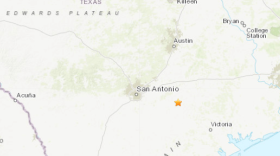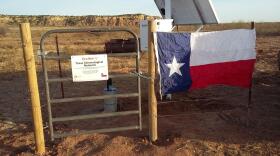Earthquake activity has skyrocketed in Texas over the last dozen years because of increased oil and gas activity. But those manmade quakes are not included in a long-term earthquake hazard map released Wednesday by the U.S. Geological Survey.
An earthquake hazard map forecasts the risk of powerful earthquakes striking an area. They’re used to set building standards in places where quakes are likely.
After the oil and gas boom set off a surge of quakes in Texas and Oklahoma in 2008, the USGS included that quake history in some long- and short-term projections. But that information isn't included in the new map.
“We didn’t really want to put in those kind of changes [in seismicity] unless they're sustained long-term shaking levels,” said Mark Petersen, a seismologist with the USGS and the map's lead author. “If we use those kinds of numbers than people in Dallas-Fort Worth would be designing to a very high standard.”
Seismologists say many of the manmade quakes are caused by the injection of oil and gas wastewater deep underground. They became less frequent in some places after drilling activity slowed down in 2011, and Texas and Oklahoma added more regulation of wastewater injection. But, now that the oil boom is back, quakes seem to be on the rise in some parts of Texas.
“We do know that the Permian Basin is ramping up in its activity, and there has been some induced earthquakes in that area,” Petersen said.
Still, he says the USGS has no plans to reintroduce data on manmade quakes to the hazard map or produce any more maps illustrating short-term risk.
“Right now the hazard is still significant,” he says, “Its just that’s it’s so much lower.”





